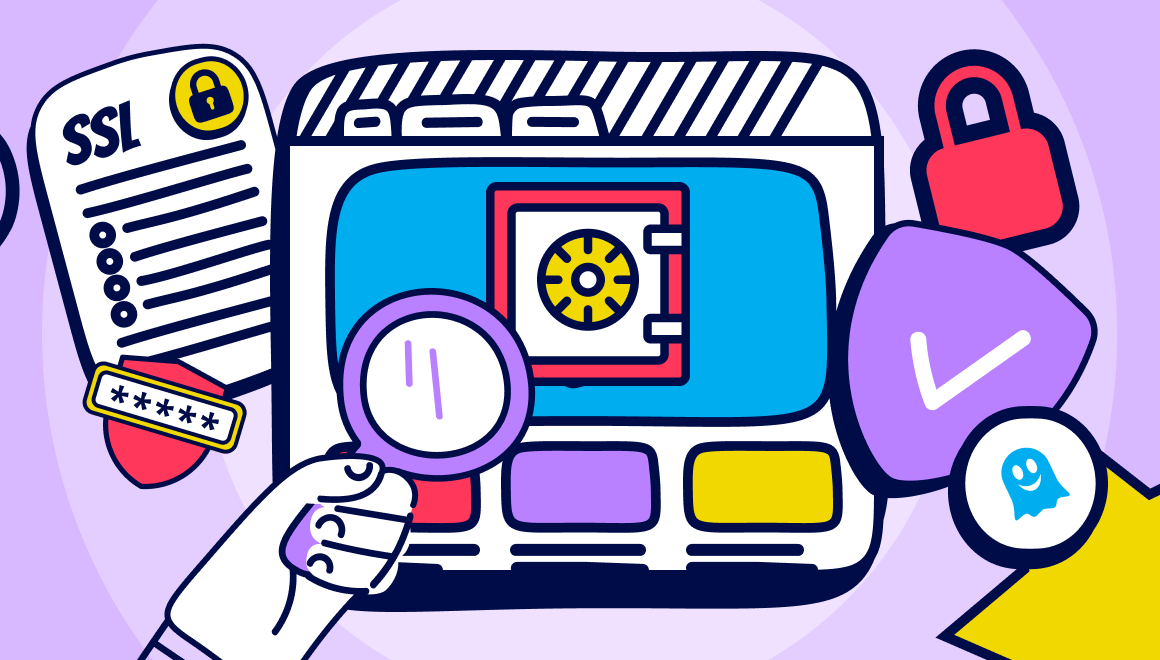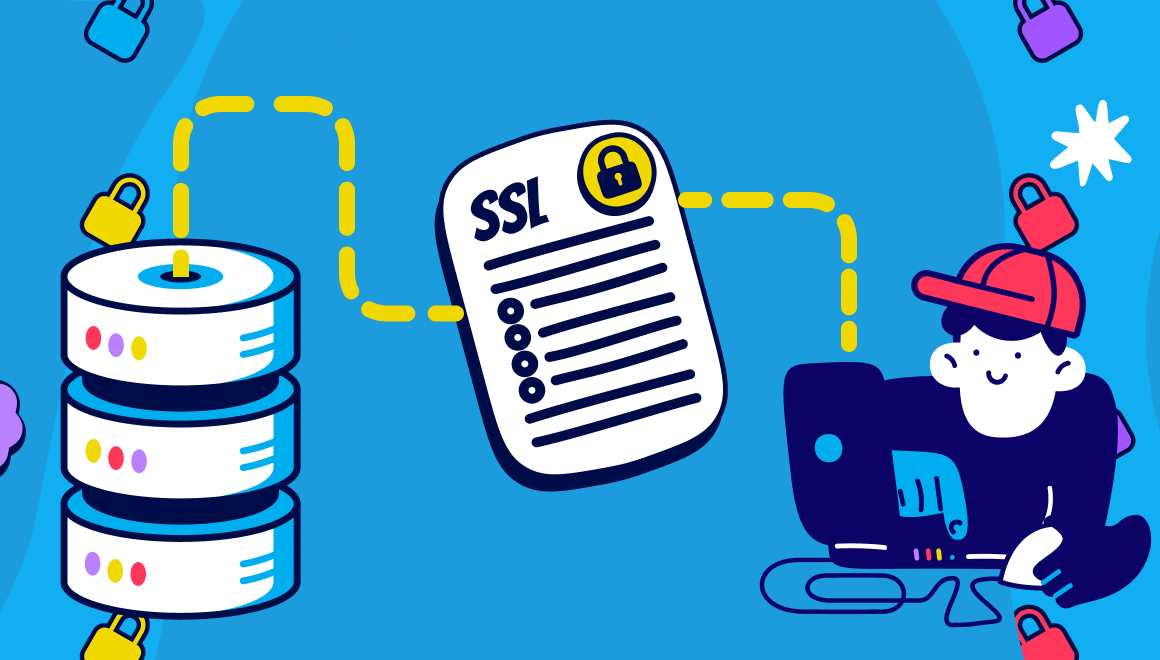Guide
Do VPNs Block Ads?
Key Points:
- VPNs and ad blockers are tools that can help you protect your online privacy and security, and improve your browsing experience by blocking ads and trackers.
- VPNs can block some ads indirectly, but not all types of ads directly. Ad blockers can block different types of ads from web pages, but not all browsers or devices support them.
- Ghostery offers reliable and effective ad-blocking solutions. Ghostery can also block YouTube ads and enhance your privacy and security.

Do VPNs Block Ads?
If you care about your online privacy and security, you might have heard of VPNs and ad blockers. These are tools that can help you protect your data and identity from prying eyes and malicious actors.
VPNs and Ad Blockers
There are significant differences between VPNs and ad blockers.
VPNs
A Virtual Private Network (VPN) is a service that creates a secure connection between your device and a remote server.
When you use a VPN, your internet traffic is encrypted and routed through the server, hiding your IP address and location from anyone who might be snooping on your online activity. This way, you can browse the web anonymously and also access content that might be blocked or restricted in your region.
While a few VPNs block ads, the main benefits of using a VPN are:
- Privacy: Prevents your internet service provider (ISP), government agencies, hackers, or advertisers from tracking your online activity and collecting your personal data.
- Security: Protects your data from being intercepted or stolen by encrypting it with strong protocols and algorithms.
- Freedom: Allows you to bypass geographic restrictions on streaming services, websites, or apps.
Ad Blockers
An ad blocker is a software that blocks or removes ads from web pages. Ads can be annoying, distracting, and sometimes even harmful to your device and privacy.
They can slow down your browsing speed, consume your bandwidth, drain your battery, or infect your device with malware. Some ads can also track your online behavior and preferences, and use this information to target you with more ads or sell it to third parties.
The main purpose of an ad blocker is to eliminate these unwanted ads and improve your browsing experience. Some of the benefits of using ad blockers are:
- Performance: Speed up your browsing by reducing the amount of data and resources needed to load web pages.
- Privacy: Prevent advertisers from tracking your online activity and collecting your personal information.
- Control: Give you more control over what ads you see and how they affect your browsing.
Can VPNs Block Ads?
While VPNs are primarily designed for privacy and security, they can also block some ads indirectly. This is because some ads are based on your location or IP address, which are hidden by the VPN. For example, if you use a VPN to access a website from another country, you might see fewer or different ads than if you visit the same website without a VPN.
However, most VPNs do not block ads, so you will still see ads that are not based on your location or IP address. If you visit a website that has ads embedded in its code or content, a VPN will not be able to remove them. To block these ads, you will need an ad blocker extension for your browser.
An ad blocker extension is a plugin that works with your browser to filter out ads from web pages. It can block different types of ads, such as banners, pop-ups, and video ads. It can also block other elements that might interfere with your browsing experience, such as trackers and cookies.
However, not all ad blocker extensions are the same. Some of them might not work well with certain browsers or devices, especially mobile ones. Others might also have limited features or are ineffective at stopping tracking.
That’s why you need a reliable and effective ad blocker extension like Ghostery.
Ghostery’s Ad Blocker Extension
Ghostery is a trusted provider of privacy solutions that help users browse faster and safer.
Our extensions are designed to work seamlessly with these browsers and devices, giving users the best possible browsing experience on mobile. We offer ad blocker extensions for Safari on iPhone and iPad and on Firefox for Android.
Some of the features and benefits of Ghostery’s ad blocker extensions are:
- Ad-Blocking: Block all types of ads from web pages, including banners, pop-ups, and video ads.
- Anti-Tracking: Prevent advertisers from tracking your online activity and collecting your personal data, including tracking such as fingerprinting.
- Never-Consent: Automatically rejects cookie requests from websites that want to collect your data. They also allow you to customize your consent preferences for each website.
- Ghostery Panel: Gives you a clear and detailed overview of the trackers and ads that are blocked or allowed on each website you visit.
You can enjoy a faster, safer, and smarter browsing experience on your mobile device’s browser using Ghostery. Browse 2x faster and save your data, battery, and time by avoiding unwanted ads and trackers.
How to Install Ghostery
Installing and using Ghostery’s free ad blocker is easy and straightforward:
- Go to our website and click on Get Ghostery.
- Follow the on-screen instructions to add the extension to your browser.
- Enjoy an ad-free browsing experience!
Never installed a browser extension? No worries. Check out our instructions below on how to get started:
Ghostery Private Browser: An All-in-One Solution
If you want an even more convenient and comprehensive solution for ad-blocking and privacy, you might want to try Ghostery Private Browser.
Ghostery Private Browser is a dedicated browser with built-in ad-blocking capabilities, and it works independently from your default browser.
Some advantages using it over a mainstream browser are:
- Ease of use: Does not require any configuration. You just need to download it and start browsing. No need to worry about enabling extensions.
- Seamless integration: Integrates all the ad-blocking and privacy features within the browser itself. You don’t need to deal with multiple apps or plugins that might conflict or interfere with each other.
- Enhanced features: Offers additional features that are not available in other browsers or extensions. For example, it has HTTPS upgrades that ensure secure connections to websites and URL Tracking Protection (query Stripping) that removes tracking parameters from URLs.
- Built on Firefox: Uses the Firefox codebase underneath, with modifications and tweaks for greater privacy and security.
You can have an all-in-one browser solution for ad-blocking and privacy. Load pages quickly with confidence and peace of mind, knowing that your data and identity are protected from online threats.
Can VPNs Block YouTube Ads?
YouTube is one of the most popular and widely used platforms on the internet, but it is also notorious for showing annoying and intrusive ads.
Will a VPN block ads? While VPNs can help you bypass geolocation restrictions on YouTube, they do not directly block ads on the platform. VPNs cannot block YouTube ads because they are served by Google, which uses sophisticated algorithms and methods to deliver ads based on your online activity and preferences. A VPN might hide your location or IP address, but it cannot hide your browsing history or cookies from Google.
To block YouTube ads, you will need an ad blocker. However, not all ad blockers can do this effectively, as Google constantly updates its ads and tries to circumvent ad blockers.
That’s why you need Ghostery as an effective way to block YouTube ads across different devices. Ghostery can block Google’s ads on YouTube without compromising the performance or quality of the videos.
You can enjoy watching YouTube videos without interruptions or distractions from ads. You can also save your data, bandwidth, and time by avoiding unnecessary ads and trackers.
Beyond Ad Blocking: Enhancing Online Privacy
Additional Layers of Privacy Protection
While ad blockers are effective at stopping intrusive ads and protecting privacy to an extent, there are additional layers of protection you can add to further enhance your online privacy. Two popular options that work hand-in-hand with ad blockers are virtual private networks (VPNs) and anti-tracking tools.
A VPN encrypts your internet connection and routes it through a remote server, hiding your IP address and location. This prevents websites and advertisers from tracking your browsing behavior across sites. A VPN provides an added shield by masking your digital footprint.
Anti-tracking tools like Ghostery monitor and block the vast number of third-party trackers that follow you across the web. Blocking ads also blocks trackers, as they are usually embedded in ads. Trackers collect data about your online activity which is then aggregated into a profile for targeted advertising. Anti-tracking blocks these invasive trackers and gives you control over which sites can track you.
The Interplay Between VPNs, Ad Blockers, and Anti-Tracking
When used together, a VPN, ad blocker, and anti-tracking give you a robust defense against intrusions on your privacy. The VPN masks your IP address and location, the ad blocker stops unwanted ads, and the anti-tracking blocks invisible trackers that profile your activity. They work in tandem to minimize the amount of data collected on your browsing.
No single tool can fully protect your privacy, but combining privacy-focused extensions forms strong, overlapping layers of protection. Blocking ads is a good start, but adding a VPN and anti-tracking significantly enhances your ability to control how much of your data is exposed as you browse the web. Taking a multi-layered approach allows you to browse freely with peace of mind.
VPN ad blockers exist, but you will still need a dedicated ad blocker like Ghostery to stop some ads (like on YouTube).
Recap
While VPNs can block some ads indirectly, they are not enough to block all types of ads. Ad blockers can block different types of ads from web pages, but they might not work well with certain browsers or devices.
Ghostery can block all types of ads from web pages, including YouTube ads, without compromising the performance of the videos.
This extension can also protect your privacy by preventing advertisers from tracking your online activity and collecting your personal data.
Get in touch if you have any questions. We’re always happy to help.


